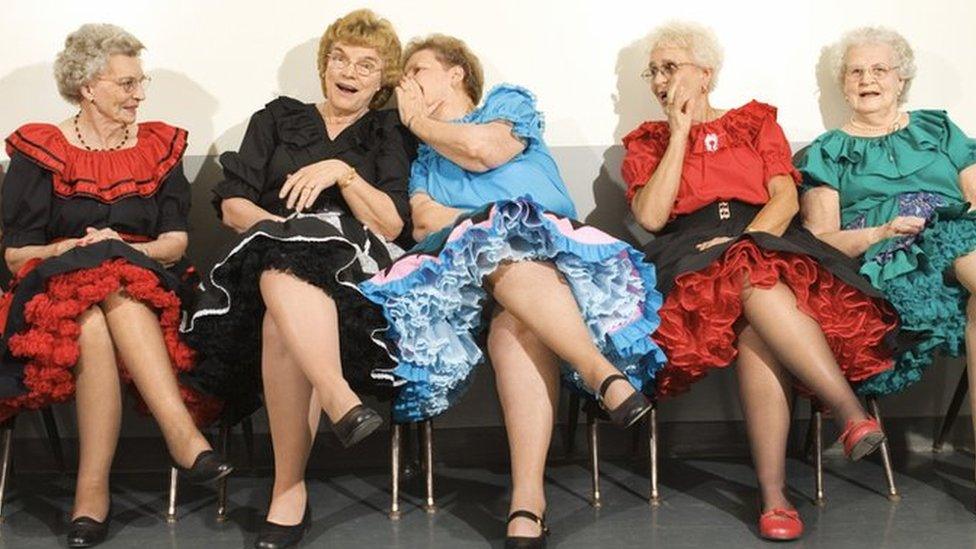Mental health: 'Breaking is the one thing that saved me'
- Published
Jamie Berry turned to breakdancing as an escape from bullying
After years of bullying, when he was just 13 Jamie Berry tried to take his own life.
Then Jamie turned to breakdancing - known as breaking - which he says has saved him from suicide numerous times.
In Rhondda, he is using breaking to help others in a class which GPs can now refer people to.
Public health experts hope community classes like Jamie's, run by Avant Cymru in Cymmer, could help ease pressure on NHS services.
"It's a way to get the demon off my back and to be free," he said.
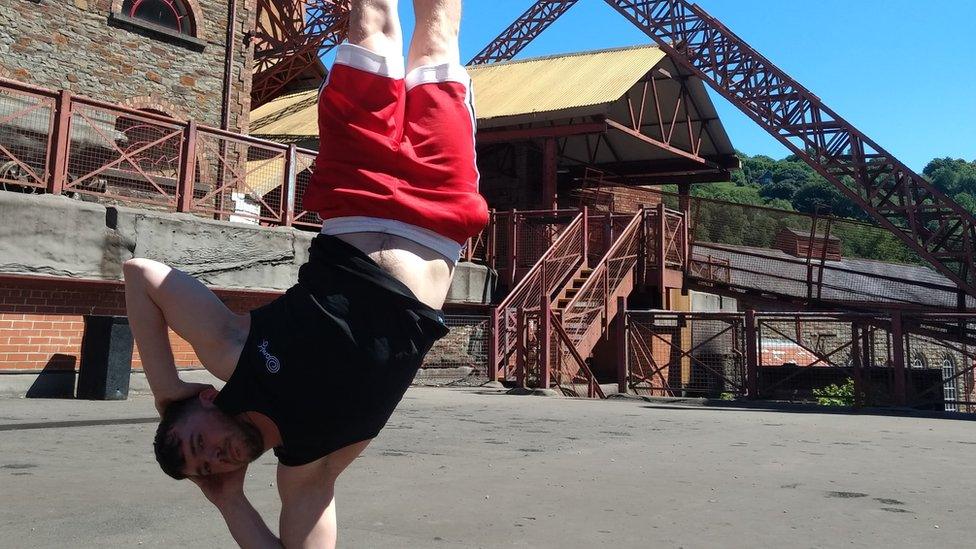
Jamie Berry is helping young men and women deal with bullying and their emotions through breakdancing
"Sometimes people don't need to speak. A lot of the time they need to just let it out, vent their frustration, get their anger out, throw themselves around, enjoy it."
The number of GP referrals for mental health support assessments in Wales increased by 47% between 2014 and 2018 - rising from 50,630 to 74,453.
Classes like Jamie's, called social prescribing, external, are a new approach by GPs to help people in their own communities, rather than - or sometimes alongside - more traditional medical interventions.
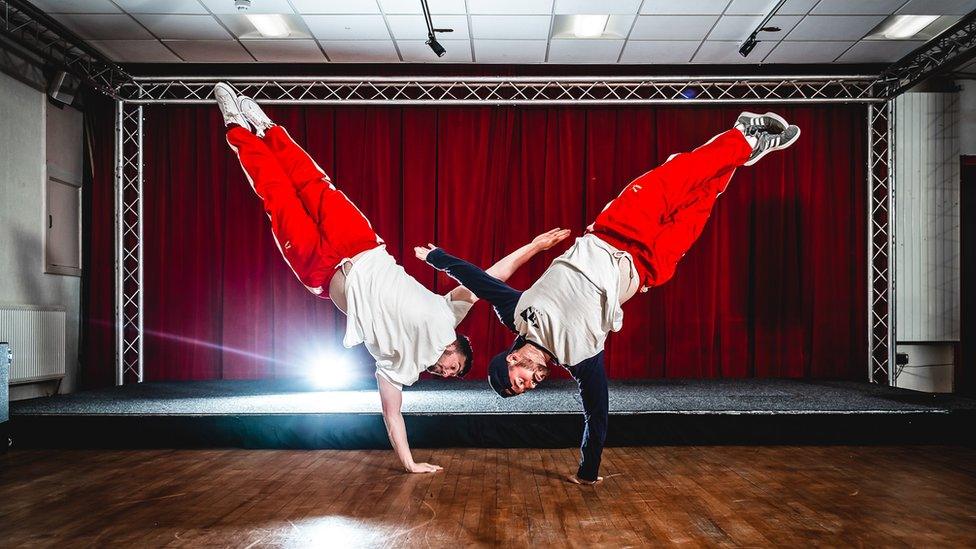
Jamie says the group helps young men and women come together and talk, dance, have a laugh - and just vent their emotions
When he was a teenager Jamie spotted a group of "B-boys" - young men performing "breaks" - in his home town.
Inspired, he started learning the moves in his bedroom via a computer game.
He now believes this saved his life.
Dyslexic and dyspraxic, he was bullied throughout school, had few friends and began struggling with his mental health.
"I was being told every single day that everyone would be happier and better off if I wasn't alive. I thought the nicest thing was to just go," he said.
He first tried to take his own life when he was 13 and, while his mum tried her best, he said he had no professional help.
He went to a GP, but he said it did not help, and waited for other services which never materialised.
"It got to the stage where every moment of every day I just thought about different ways of taking my own life," he said.
"I had to go out and just try and deal with it myself."
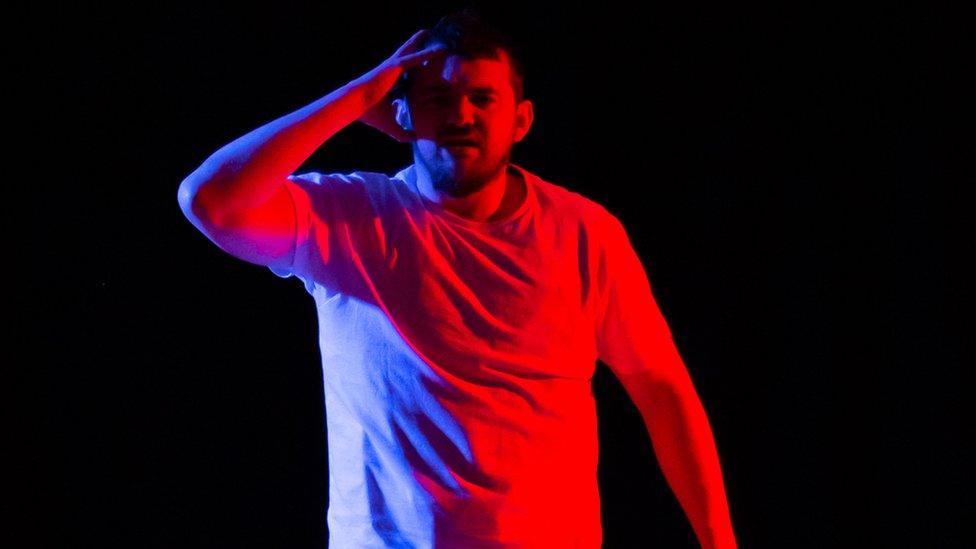
In his first solo breaking performance Jamie showed his battle with addiction, depression and suicidal thoughts
He did that by joining a breaking crew and then moved to Wales to set up his own group with Avant Cymru.
Jamie believes the group, which has male and female members aged from seven to 45, helps others with bullying and their feelings as it is a place where they talk, dance and feel part of a community.
The group puts on regular shows, which the Samaritans attend to help anyone who may be affected by the topics they explore through dance and rap.
"Mental health is one of the biggest and most difficult things we face, so it's about making the change through hip-hop and breaking, to have that freedom to express and create," he said.
"I have tried to take my own life - but my choice is to keep going, I have been there, I have seen how low you can go - I know you can get through it."
Sara Thomas, from Public Health Wales, believes groups like Jamie's could help reduce pressure on more traditional NHS services, through social prescribing.
The model allows health professionals to refer patients to link workers, who look at the reasons behind why someone has gone to the doctor, and try to pinpoint community groups that may support them.
"Someone could present to the GP with anxiety or depression and one of the more traditional options would be to prescribe anti-depressants," said Ms Thomas.
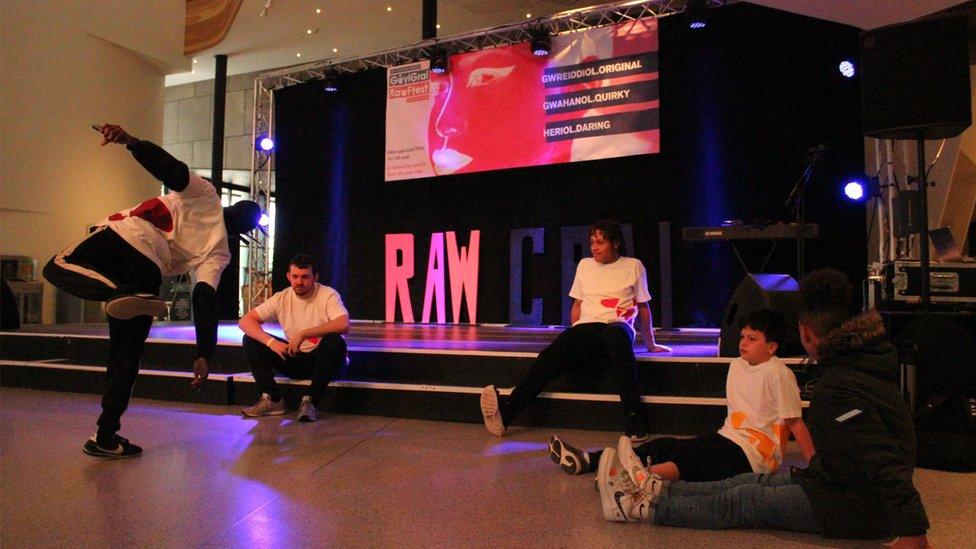
The B-boys and girls at the Wales Millennium Centre, in Cardiff Bay, showing off their skills
"Social prescribing explores what matters to the individual - it might be a debt or a financial issue and by providing advice and support in the community, that individual has the support to overcome the challenges - they don't need any medical intervention."
While there have been no large scale research projects on social prescribing, Ms Thomas said some reports had shown it had led to a reduction in demand on hospitals and GP services and a group of experts and GPs has been formed to look at progress in Wales.
But Helen Gilburt, from The King's Fund, said there were some challenges and pitfalls, especially as social prescribing relies heavily on the third sector.
"We know when finances are tight, investment in voluntary and community sector organisations can be hit as part of that," she said.
"If there isn't the range of choice and availability that's there to meet people's needs then it might be that the offer is really limited and it's not appropriate to supporting people with their mental health issues."
If you have been affected by self-harm, suicidal thoughts or emotional distress, help and support is available via the BBC Action Line.
- Published21 February 2019

- Published28 January 2019

- Published5 December 2018
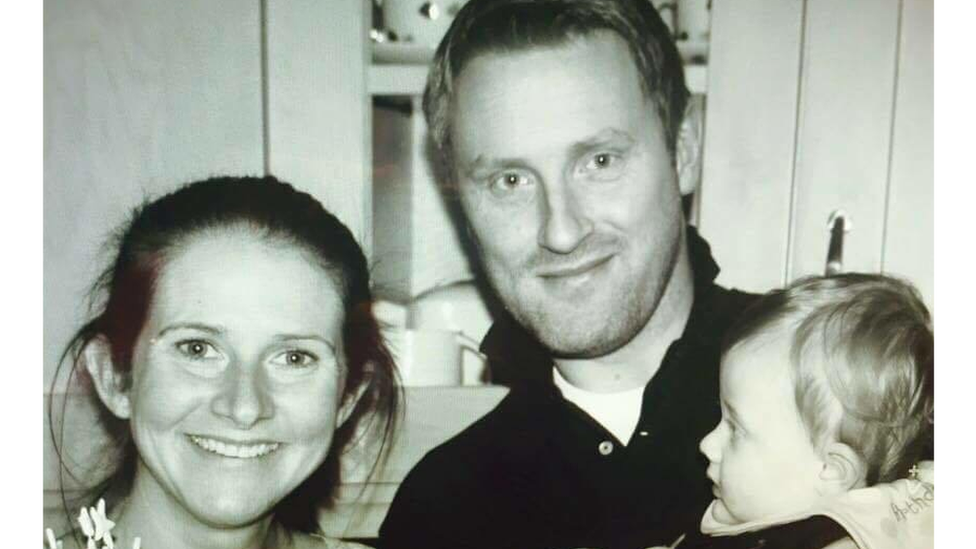
- Published15 October 2018
